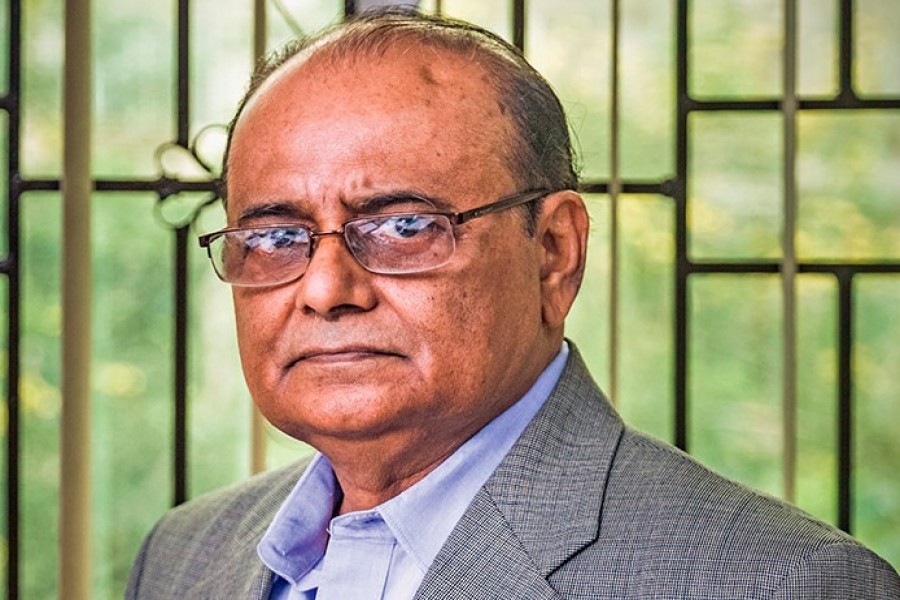A senior economist has suggested reducing over-dependence on borrowed money for implementing the development budget, terming it a bad sign for the economy.
“All the annual development programmes that are prepared by the ministry of planning are funded with borrowed money – either foreign or domestically borrowed – and not out of savings,” Dr Zaidi Sattar told a webinar on Tuesday.
Annual Development Programme (ADP) is the development budget and the government’s development projects including large infrastructure projects are part of it.
Dwelling on the government’s borrowing, Zaidi Sattar, chairman of Policy Research Institute (PRI), pointed out that Bangladesh has the scope to invest more from savings money in development.
“This (the current trend) is no good. We would like to borrow money for ADP, and it could be 60 per cent or 70 per cent but not 100 per cent,” he cautioned.
The economist also expressed concern over rising subsidy and deficit financing that seriously affect the government’s fiscal expenditure. The amount of subsidy now stands at Tk 500-700 billion, he said, adding, “We could have built two Padma bridges with this money.”
Zaidi Sattar mentioned that the deficit and the size of the ADP are almost the same – worth Tk 2.0 trillion.
The observations came at the PRI webinar titled “After the Pandemic Onslaught – Economy on Strong Recovery Path”.
Economic analysts and business leaders there emphasised a comprehensive plan for economic recovery during the pandemic and special care for the SMEs.
In response, Planning Minister MA Mannan regretted that despite having a digital system, many of the SMEs failed to secure cash incentives. “Due to their lack of links with banks and records with the system, we found difficulties in distributing the money,” he said.
“We tried to inject cash incentives into the SMEs, and even if the money goes to a wrong place except Begum Para (meaning flight of capital abroad), we hope at the end of the day the country’s economy would be benefitted,” the minister added.
He called for making a study on calculating economic losses caused by political bickering in the country.
Ahsan H. Mansur, Executive Director at PRI, echoed others that Bangladesh’s impressive economic growth and recovery during the pandemic have been possible due to human potential.
Rizwan Rahman, President of Dhaka Chamber of Commerce and Industry (DCCI), underlined the importance of structural reforms to support the recovery process, with a special focus on social safety net and job creation. “For the Bangladesh economy, the year 2020 was a year of survival and 2021 of revival and we hope, 2022 is going to be a year to thrive,” he said.
SANEM Research Director Dr Sayema Haque Bidisha said the agriculture sector has played a significant role during the pandemic and in the recovery journey. She recommended special attention to people engaged in farming especially women workers who have been struggling to recover from their job loss in the pandemic.
Faruque Hassan, President of Bangladesh Garment Manufacturers and Exporters Association (BGMEA), and Md. Fazlul Hoque, former President of Bangladesh Knitwear Manufacturers and Exporters Association (BKMEA) and Managing Director, Plummy Fashion, also spoke at the event.


